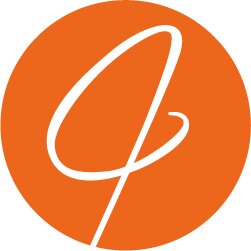Best Nursing Home Abuse Lawyers in Benoni
Share your needs with us, get contacted by law firms.
Free. Takes 2 min.
List of the best lawyers in Benoni, South Africa
About Nursing Home Abuse Law in Benoni, South Africa
Nursing home abuse refers to any action or lack of action that causes harm, distress, or risk to elderly residents in care facilities. In Benoni, South Africa, this abuse may take various forms, including physical, emotional, financial, or neglectful treatment. It's a serious and often underreported issue affecting some of the most vulnerable members of society. South African laws, including those applicable to Benoni, are designed to protect the rights and well-being of elderly people in nursing homes or assisted living facilities. Awareness of legal protection is crucial for families and loved ones who suspect mistreatment.
Why You May Need a Lawyer
Many people turn to legal professionals when they suspect a loved one is experiencing abuse or neglect in a nursing home. Common situations that may require the assistance of a lawyer include:
- Noticing unexplained injuries or sudden health declines
- Observing signs of emotional distress, fear, or withdrawal
- Discovering poor hygiene or unsanitary living conditions
- Being denied access to medical or personal records
- Suspecting financial exploitation or theft
- Receiving vague or evasive responses from care staff about incidents
- When speaking directly to care home management does not solve the problem
A lawyer experienced in nursing home abuse cases can help gather evidence, protect the rights of the elderly, and pursue justice through legal action. This is especially important when abuse results in serious injury or financial loss.
Local Laws Overview
Nursing homes in Benoni are governed by national legislation, including the Older Persons Act 13 of 2006. This Act aims to maintain and promote the rights, dignity, and well-being of older people. Some key aspects you should know include:
- Duty of Care: Facilities must ensure residents' safety, health, and comfort, providing adequate nutrition, hygiene, and medical care.
- Abuse and Neglect Prohibited: Any form of abuse, from physical harm to emotional mistreatment or deprivation, is unlawful.
- Mandatory Reporting: Staff and management are legally obligated to report suspicious injuries, neglect, or abuse to authorities.
- Inspection and Licensing: Nursing homes must be licensed and are subject to regular inspections by government authorities.
- Right to Privacy and Dignity: Residents are entitled to privacy, participation in decision-making about their care, and freedom from discrimination.
- Legal Recourse: Victims and their families can claim compensation and seek criminal charges in cases of severe abuse or neglect.
Local authorities in Benoni work with provincial and national bodies to enforce these standards and respond to complaints.
Frequently Asked Questions
What are the common signs of nursing home abuse?
Common signs include unexplained injuries, bruising, changes in mood or behaviour, sudden weight loss, poor hygiene, and withdrawal from social activities.
What should I do if I suspect nursing home abuse?
You should immediately document your concerns, take photographs if possible, speak with the nursing home management, and contact relevant authorities or a lawyer to guide you on the next steps.
Are nursing homes in Benoni strictly regulated?
Yes, nursing homes in Benoni are regulated under the Older Persons Act, which lays down strict standards for the care and treatment of elderly residents.
Can I report nursing home abuse anonymously?
Yes, reports to social workers or police can often be made anonymously. However, providing your details may help authorities follow up more effectively.
Is nursing home neglect treated the same as abuse by law?
Neglect is considered a form of abuse under South African law. Both physical abuse and neglect are illegal and actionable.
How do I prove nursing home abuse?
Proof can include medical reports, witness statements, photographs, records of complaints, and any correspondence with the care facility.
What compensation can be claimed for nursing home abuse?
Depending on the situation, you may be able to claim compensation for medical costs, pain and suffering, loss of quality of life, and financial losses.
Who investigates cases of nursing home abuse in Benoni?
Cases are investigated by the South African Police Service, the Department of Social Development, and sometimes by independent social workers or ombudsmen.
Do I need a lawyer to file a complaint?
You are not required to have a lawyer, but legal assistance can be very helpful in navigating complex cases and ensuring your complaint is taken seriously.
How long does a nursing home abuse claim take to resolve?
The timeline varies. Simple cases may take a few months, while complex cases with severe harm can take a year or more, especially if they go to court.
Additional Resources
If you need more information or further assistance, you may consider contacting:
- The Department of Social Development - Elder Persons Programme
- South African Human Rights Commission
- The South African Police Service (SAPS)
- Black Sash (advocacy for social justice)
- Older Persons' Forums in Gauteng Province
- Legal Aid South Africa
These organizations provide guidance, investigation, and legal support.
Next Steps
If you suspect nursing home abuse in Benoni, act quickly to protect your loved one. Start by documenting evidence and voicing your concerns with the care facility. If the response is inadequate or your concerns persist, file a formal complaint with the Department of Social Development, SAPS, or another relevant authority. Consulting a qualified lawyer experienced in elder law or personal injury is often the best way to ensure your case is handled with the seriousness it deserves. Legal professionals can advise on the strength of your case, gather additional evidence, and ensure you understand your rights and available remedies. Early intervention is crucial in stopping abuse and securing justice for your loved one.
Lawzana helps you find the best lawyers and law firms in Benoni through a curated and pre-screened list of qualified legal professionals. Our platform offers rankings and detailed profiles of attorneys and law firms, allowing you to compare based on practice areas, including Nursing Home Abuse, experience, and client feedback.
Each profile includes a description of the firm's areas of practice, client reviews, team members and partners, year of establishment, spoken languages, office locations, contact information, social media presence, and any published articles or resources. Most firms on our platform speak English and are experienced in both local and international legal matters.
Get a quote from top-rated law firms in Benoni, South Africa — quickly, securely, and without unnecessary hassle.
Disclaimer:
The information provided on this page is for general informational purposes only and does not constitute legal advice. While we strive to ensure the accuracy and relevance of the content, legal information may change over time, and interpretations of the law can vary. You should always consult with a qualified legal professional for advice specific to your situation.
We disclaim all liability for actions taken or not taken based on the content of this page. If you believe any information is incorrect or outdated, please contact us, and we will review and update it where appropriate.









